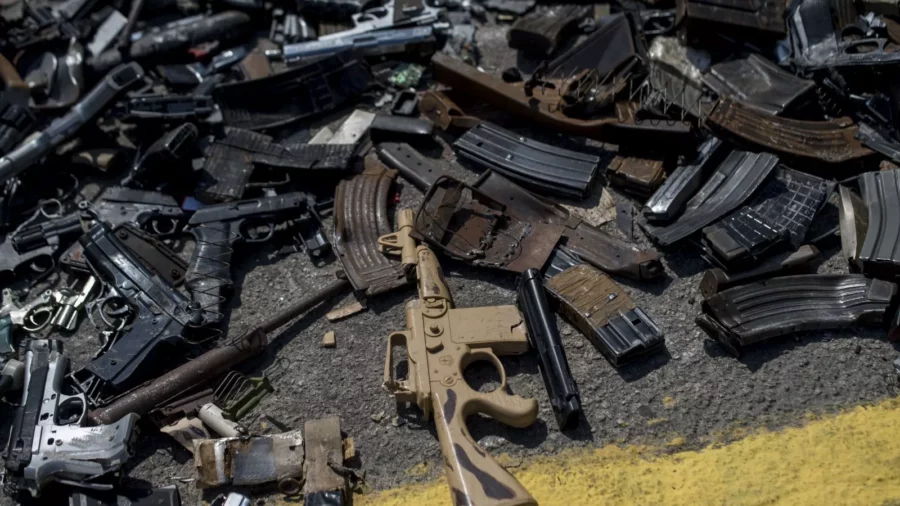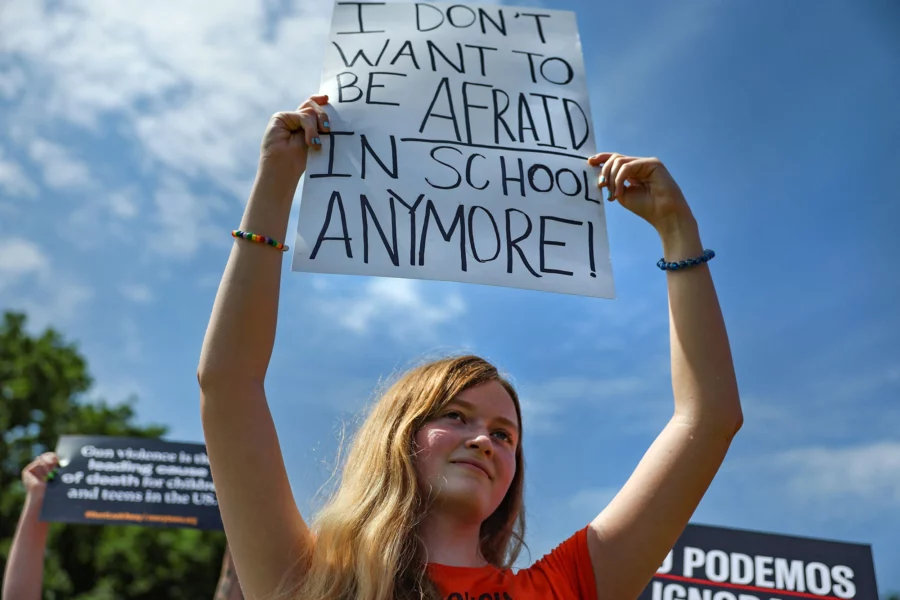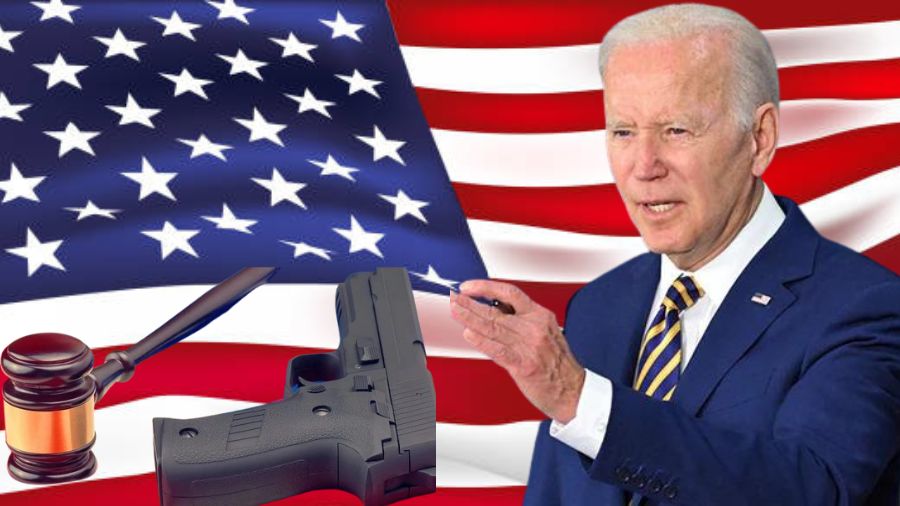The first major move toward tightening federal gun rules in nearly three decades was taken on Tuesday with the introduction of legislative text by a bipartisan group of senators for a limited set of gun safety measures. If approved, the legislation would mandate more thorough background checks for buyers under the age of 21 and allocate $15 billion in new federal money for mental health initiatives and improvements to school security. The broad gun control measures, such as a ban on assault weapons and restrictions on high-capacity ammunition magazines that President Joe Biden and other Democrats have called for in the wake of recent mass killings, however, are far less comprehensive than the bipartisan agreement.

The proposal is anticipated to clear the Senate by the end of the week and then move to the House floor for a vote before the July 4 recess because 10 Republican senators have already stated their support for the original framework, which is sufficient to end a filibuster. Californian Democrat and House Speaker Nancy Pelosi said last week that the Democratically controlled House would adopt any legislation the Senate would pass. Sen. Chris Murphy of Connecticut, the chief Democratic negotiator, declared on Tuesday that “this is a breakthrough.” “This legislation will save lives.”
Though the bill received support from Republican Kentucky senator and Senate Minority Leader Mitch McConnell, it’s uncertain how many Republican senators will ultimately support it. He stated in a statement released Tuesday night that “our colleagues have put together a pragmatic package of popular initiatives that will help make these horrible tragedies less frequent while fully preserving the Second Amendment rights of law-abiding residents.”

Nearly a month has passed since a gunman in Uvalde, Texas, killed 19 children and two teachers, making it the second-deadliest school shooting in American history. That killing happened barely ten days after a large-scale, racially motivated shooting at a supermarket in Buffalo, New York. According to the Gun Violence Archive, which classifies a mass shooting as an occurrence in which four or more persons are shot or killed, excluding the shooter, there have been 278 mass shootings in 2022.
However, one of the most divisive topics in American politics is gun reform. 1994, the same year The Lion King hit theatres, marked the last time the federal government passed legislation aimed at preventing the spread of firearms.
Here are the main components of the new, bipartisan gun legislation.
State rewards for “red flag” laws
To assist states in enacting crisis intervention programs or so-called “red-flag” laws, which permit police to temporarily seize guns from those believed to constitute a threat to themselves or others, the bill allocates $750 million in extra federal money over five years. Currently, 19 states and Washington, D.C. have these laws.

This clause was the main topic of discussion in the bill’s closing days of talks, as Republicans voiced concerns that red-flag legislation trampled on the rights to due process of persons who are deemed to be threats. According to the legislative language, the measure addressed these issues by mandating that the accused have the right to an in-person hearing, the right to be aware of any conflicting evidence, and the right to legal representation at no cost to the government.

In his remarks on the chamber’s floor, Murphy said that under the legislation, “every state will be able to use significant new federal funds to be able to expand their programs to try to stop dangerous people, people thinking about mass murder or suicide, from being able to have access to the weapons that allow them to commit that crime.”
Safeguards for domestic violence victims
The bill would close what is referred to as the “boyfriend loophole,” a loophole in current federal law that only prohibits people convicted of domestic violence from buying a handgun if the victim was either a spouse or partner with whom they resided or had a child. Anyone convicted of abusing a current or past dating partner will also be added to the FBI’s National Instant Background Check System and disqualified from purchasing firearms under the new rule, which is a first.

A “connection between individuals who have or have recently had a continuing significant relationship of a romantic or personal type” is how the bill defines a dating relationship. According to the legislative language, it would depend on the extent and form of the relationship, as well as how frequently and how the parties involved interacted. Negotiators struggled over whether or how to close the loophole but eventually came to an agreement that would allow dating partners convicted of a misdemeanor to regain their right to purchase a firearm after five years as long as they were first-time offenders and had not been convicted of any other violent misdemeanors or offenses.
Licensing requirements clarification and illegal “straw” purchases
In an effort to crack down on individuals who illegally avoid licensing requirements, the proposed legislation would tighten laws governing the purchase of firearms by reducing the scope of what constitutes a federally registered firearms dealer. It makes it clear that a person must register as a Federal-Firearm Licensee if they frequently buy and sell firearms “primarily to earn a profit.” Additionally, it requires that dealers perform background checks and maintain the necessary paperwork.

Murphy claims that this clause might add thousands more gun sales to the background check system.
Additionally, the measure would make it more difficult to buy guns through “straw” sales from other parties. The bill stipulates that anyone found guilty of buying or selling might get a fine and a 15-year sentence in prison.
Improved review process for under 21
The law would improve background checks for people under 21 who buy guns. In addition to the usual records from state databases and local law enforcement, if the legislation is approved, authorities would have up to 10 working days to evaluate the juvenile and mental health records of potential gun buyers in that group.

The panel of legislators thoroughly reviewed the processes of this clause because state records can be incomplete or differ from state to state. The provision would offer subsidies to assist states in maintaining criminal and mental health records in order to expedite this procedure. Under present legislation, anybody 18 or older may purchase rifles, shotguns, and ammo for both, including the military-style semi-automatic firearms utilized in numerous recent mass shootings.
Investments in school safety and mental health services
Additionally, senators decided to allocate nearly $15 billion over the following five years for the improvement of school safety and the expansion of mental health services. More than a dozen new programs would be introduced by the measure, including one that would expand the network of “community behavioral health clinics” and another that would give more people in mental health crises access to telehealth treatments.

According to the bill summary, a one-year delay of a Medicare drug-rebate provision would offset the federal outlay, with savings to the government anticipated at around $21 billion. Schools would get several billion dollars in funding, with efforts made to improve security measures. The Act covers five new areas of funding, including programs for early detection and intervention, wrap-around mental health and support services provided in schools, and enhancements to safety and security at schools. The $300 million allocated for school security improvements will be used to implement safety measures inside and outside of buildings as well as to train faculty members and students.







Add Comment